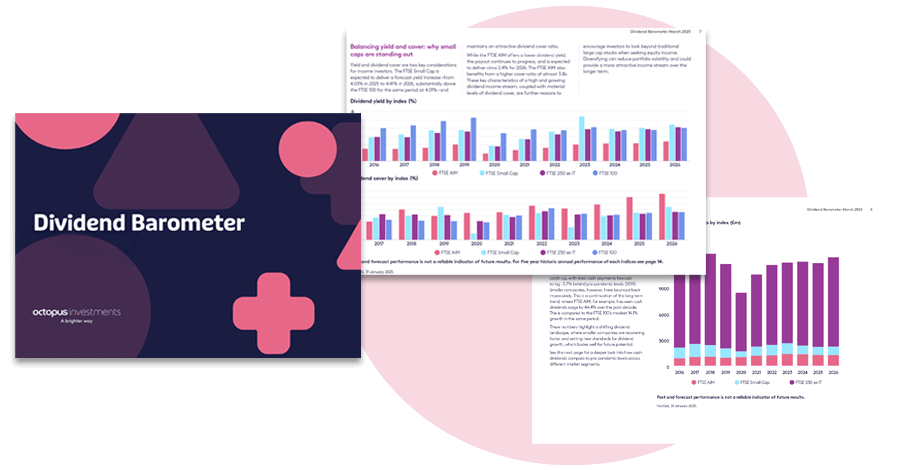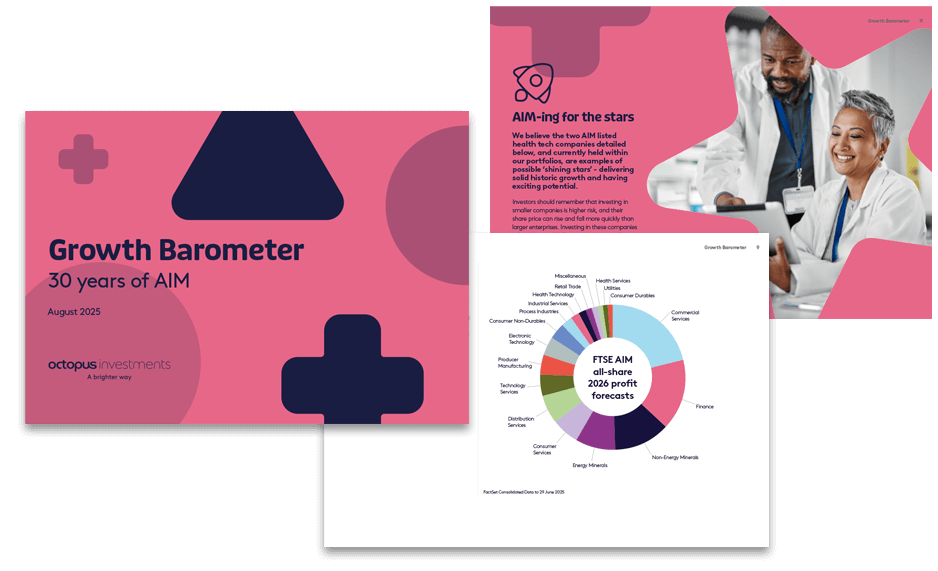As the chair of the investment committee for the Octopus Inheritance Tax Service, I oversee the reviews that the core product strategy team undertake. These reviews occur both ahead of committing funds, and throughout the life of any business Fern Trading Limited owns or any loan on its book. My role puts me in a great position to explain both how the various investment teams around Octopus operate and our product governance structure.
Let’s start with some background to the product. The Octopus Inheritance Tax Service is a Discretionary Management Service (DMS), with Octopus in the role of discretionary manager. Octopus is responsible for all aspects of managing the service. Specialist teams at Octopus handle custody, compliance, operations, adviser and investor relations.
Octopus is also responsible for selecting portfolio companies that meet the product mandate. The Octopus Inheritance Tax Service is invested into companies that we set up and manage where the only shareholders are Octopus investors. This enables us to make sure that the companies have a strategy completely focused on targeting the product mandate: to qualify for Business Relief and to target 3% growth for investors, with a focus on mitigating downside risk. Of course, these are the objectives of the Service and not a guarantee of what it will achieve. As a result, we are also responsible for the day to day decision making on behalf of each portfolio company. This is where our investment teams and investment committee come in.
We have a dedicated team of ten people who look after Fern Trading Limited, the company in which investors own shares. This team is responsible for designing, monitoring, evaluating and improving the strategy of Fern, with the team reporting into Fern’s independent board.
This portfolio team also reviews investment opportunities that come from our individual sector-focused teams, which they do via the investment committee.
Sector-focused investment teams
Fern’s business is spread across sectors where Octopus has significant experience and expertise.
There are three large sector-focused teams whose activities contribute to delivering the mandate of the Octopus Inheritance Tax Service: renewable energy (55 people on the team), healthcare (20 people on the team) and property lending (65 people on the team).
Each of these sector-focused teams is looking for the best opportunities in its sector. The size and scale of Octopus, combined with our focused specialism in the areas we operate (we are, for example, the UK’s largest commercial-scale solar manager), mean that we attract the strongest talent in the industry. We also have great access to available opportunities.
Each team has its own internal investment management process comprising experienced professionals in that sector. Approval can be granted at that level for opportunities that are similar to those undertaken previously, such as a new wind farm or a new property loan. However, any new or unusual opportunities that require further analysis will be referred up to the Fern level investment committee.
The Fern level committee is also responsible for reviewing the strategy of Fern on a quarterly basis. The committee will debate and approve (or otherwise) any move into a new sector or change in risk parameters.
Octopus also has other specialist investment managers you may have heard about. They focus on venture capital, smaller companies listed on the Alternative Investment Market (AIM), as well as a multimanager team that provides a DFM service. However, the activities of these teams are not relevant to the Octopus Inheritance Tax Service.
The investment committee
The investment committee and its specialist sub-committees are the main decision-making forums for the Octopus Inheritance Tax Service. These all meet weekly, often for several hours at a time.
Any opportunity that Fern is thinking of pursuing must be thoroughly reviewed and approved by these committees. I chair the Octopus Investments investment committee, which delegates sector decision making to the other committees and reviews any usual or new proposals directly. The other members are our Chief Investment Officer, Jonathan Digges; the head of the Fern team, Robert Skinner; Octopus founder Chris Hulatt; the CEO of Fern, Paul Latham; and the portfolio manager for Fern, Ed Fellows.
Decision making tends to be an iterative process. If the investment committee makes an initial approval, that simply gives the sector team permission to continue to spend time and resource gathering further information. We tend to make approvals with follow-on points for the investment manager to go away and improve or assess. The investment manager will then need to come back to the investment committee, perhaps on several occasions, before we approve the opportunity for Fern.
Independent input
We don’t only rely on our own experience and expertise. Fern has independent board members, plus the various teams and committees that make up the Service all make use of third-party due diligence including commercial, legal and technical.
It’s all part of taking a very deliberate, very cautious approach to how we deliver the investment mandate.
Key investment risks
While the committees, board and processes discussed are in place to mitigate certain risks, because the Octopus Inheritance Tax Service invests in one or more unquoted companies, investors’ capital is at risk. The value of an investment may fall as well as rise. Investors may not get back the full amount they invest.
Investors’ tax treatment depends on individual circumstances and may change in the future. The relief from inheritance tax depends on the portfolio companies maintaining their qualifying status.
Investors can request to sell their shares at any time, although liquidity is not guaranteed.
Where to find out more
To read more about the investment strategy of the Octopus Inheritance Tax Service, click here.
If you have a client you think may benefit from the Octopus Inheritance Tax Service, you can find more information about it here.










